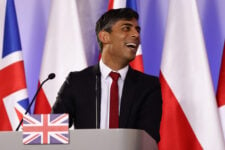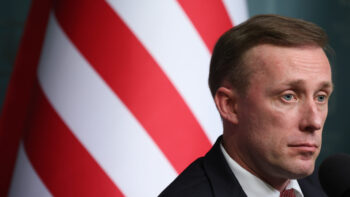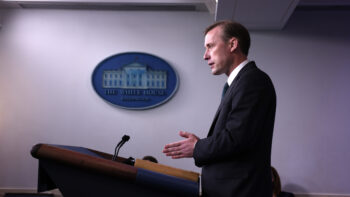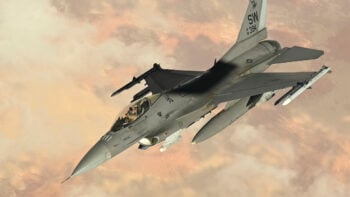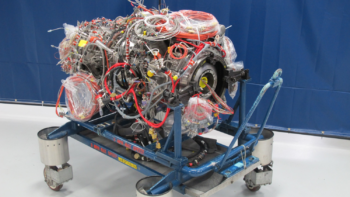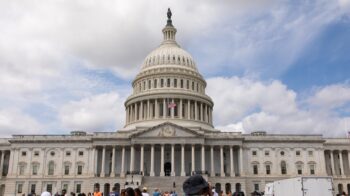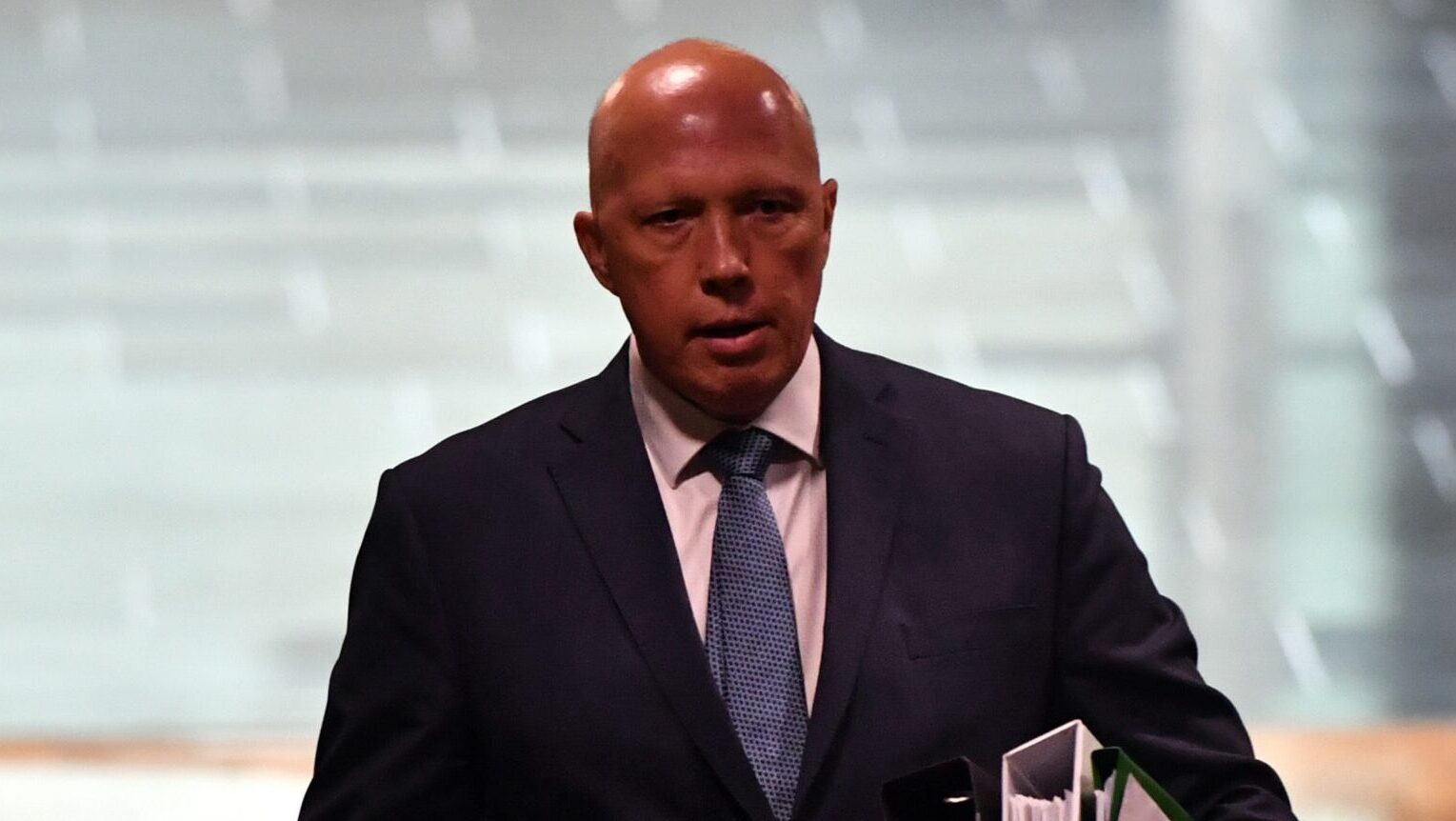
Defense Minister Peter Dutton finds himself in political hot water. (Sam Mooy/Getty Images)
SYDNEY: The biggest current political scandal in Australia revolves around attacks on the prime minister’s leadership from his own party and whether the defense minister is making a quiet play for the top spot.
To really understand Australian defense, it’s important to remember that, unlike in the United States, the man in charge of the ministry is a politician, first and foremost. Peter Dutton may be charged with overseeing and running the Ministry of Defense in Canberra, but he’s a top man in the Liberal Party — which means he is is doing all he can to ensure his party wins the upcoming election, which must take place before May 21. (For a detailed discussion of exactly what legal and constitutional factors go into determining when this election can and must be held, read this excellent explanation.)
Having a politician who knows little about the issues he’s overseeing as a minister is not uncommon in parliamentary democracies. It can have impressive benefits, notes Ashley Townshend, an expert on US-Australian defense and national security policy issues at the University of Sydney’s United States Studies Center.
“It’s a feature not a bug of the Westminster system. Whereas a US Secretary of Defense almost always has deep national security credentials and departmental or military experience, most Australian defense ministers have little to no relevant background,” Townshend said. “This typically empowers the bureaucracy and is one reason why Australia exhibits significant continuity and stability on foreign and defense policy.”
When the system works, “having a primarily political leader at the top of the defense bureaucracy can serve to cut through red tape to drive acquisition, capability and strategic policy reform,” he continued. “Australia will need a lot more of this if it’s to succeed on its ambitious regional security strategy and major initiatives like AUKUS and the fielding of new long-range strike assets.”
The contrast could not be starker between Dutton and Lloyd Austin, the American Defense Secretary whose job is to stay out of national politics. The veteran Liberal Party pol is touting jobs and investment in battleground states like Queensland with the election looming. He’s on the airwaves talking national politics — including, in a new twist, denying that he’s got his eye on taking over the party leadership from Prime Minister Scott Morrison.
That question about Dutton’s ambitions has become fodder for Australian political discourse almost every time he engages with the press here in the last week. This is all thanks to a leak of a text that has been attributed to an unnamed minister describing Morrison as a “horrible person” and a “complete psycho.” Bob Carr, a retired politician from the opposition Labor party, this week claimed that Dutton was behind the text message, which Dutton in an on-air interview with Nine News dismissed, before denying he was gunning for the PM’s chair.
Those denials, however, aren’t stopping the speculation, and raises an interesting question of what it means if the defense minister jumps to the nation’s top political seat.
If Dutton does get pushed by other members of his party to take up the leadership mantle before or after the elections, China would likely be unhappy. Dutton has taken tough positions on Beijing, describing Chinese intentions as a threat to Australian democracy and the liberal International order.
For example, the head of the Australian Security Intelligence Organisation told Parliament on Feb. 9 that “many” countries were targeting all levels of government here.
The plot thickened two days later when the Australian Broadcasting Corporation’s defense correspondent, Andrew Greene, reported that he had “confirmed a business figure in Australia with deep ties to China acted as a ‘puppeteer’ to finance potential federal Labor candidates in NSW who would be sympathetic to Beijing.”
And who stepped forward to slam the opposition Labor Party and its leader, Anthony Albanese? “The Chinese Communist Party, the Chinese government, has also made a decision about who they’re going to back in the next federal election, Mr. Speaker, and that is open and that is obvious, and they have picked this bloke (Albanese) as that candidate,” Dutton said.
No one, it bears pointing out, has claimed that Albanese knew about the Chinese attempt to support New South Wales Labor candidates. And none of the possible candidates were selected by Labor to run for office.
For his part, Albanese called Dutton’s comments “nonsense.”
“I have had a consistent position over a long period of time but I am not going to sit back and cop the sort of nonsense that is being put forward from a government that sat back while the Port of Darwin was sold to interests of a company directly engaged with, and connected to, the government of the People’s Republic of China,” Albanese countered. (A late December government report concluded that Chinese ownership of the Darwin port did not need to be overturned in the interest of Australia’s national security.)
Yes, Dutton as defense minister would be a logical person to follow up the ABC report. But the fact he was so quick to attack Albanese, ahead of Dutton’s other Liberal colleagues, raises plenty of eyebrows. And now Austrailia — and defense watchers around the world — have to wait and see how serious Dutton’s denials of political ambition end up being.







